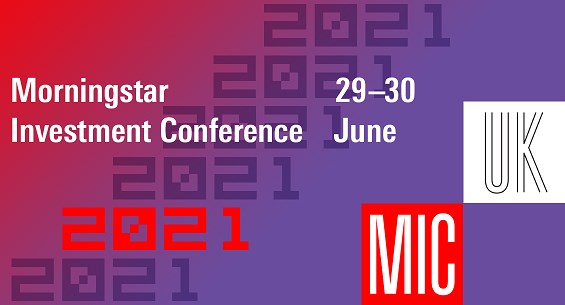
We are standing on the cusp of a hybrid world of work and leisure, says Polar Capital's Ben Rogoff, with technology at the heart of these profound changes to the way we live.
Speaking at the Morningstar Investment Conference 2021, Rogoff says that the future will not be “back to normal”, but rather a mix of familiar habits from before the pandemic struck and new ones we've had to adopt because of Covid-19. This means new working methods, new office structures, new city structures and new home structures.
Rogoff manages the Silver-rated Polar Capital Global Technology Fund, the Gold-rated Polar Capital Automation and Artificial Intelligence Fund and the Polar Capital Technology Trust (PCT) which invest in technologies at the growth stage.
He says that even as the decade since the financial crisis has very much belonged to tech, Covid-19 has provided so-called “wartime acceleration”, with years-worth of adoption happening in months to accommodate remote everything. E-commerce, cloud computing, video conferencing, telemedicine and electric vehicles have seen explosive growth – Amazon and Google, for example, grew between 30% and 50% over the pandemic.
Moreover, new markets have been opened over the past 16 months, and these markets are looking essential to the next wave of disruption – and its ripples are likely to materialise as flexible working models and as developments in artificial intelligence, machine learning and natural language processing.
Hybrid World
“What the pandemic has proven beyond any reasonable doubt […], is that we are capable of working from home and we have the tools that we need in order to do so,” he says. So what does this mean? “It means cities will be under pressure, it means we might need less office space, we might need it in different places, and we’re going to see things like deurbanisation.” That will mean more leisure time for "golf and gardening", but also a change to working patterns. The traditional "9 to 5" looks doomed as people can log on at different hours of the day and respond to emails.
While deurbanisation brings challenges to bigger cities, it is also great news for electric vehicles as cities will aim to lure people back with green initiatives, creating opportunities for renewables and hydrogen companies – and continued growth for video conferencing and collaboration tools.
To address this, Polar Capital has identified six core investment themes:
- Online advertising and commerce (Google, Ebay, Facebook)
- Software as a Service (Salesforce, Adobe, Zoom)
- Cloud infrastructure and security (Amazon, Microsoft, AMD),
- Digital entertainment (Tencent, ActiVision, Netflix),
- Data Economy/AI (Samsung, Micron, Nvidia)
- Connectivity and 5G (Qualcomm, TSMC, Analog Devices).
Two other emerging themes include “industry 4.0”, or automation (Fanuc, Keyence, Cognex), and payments and fintech companies (PayPal, Alibaba, DocuSign).
Growing AI Opportunities
The nature of this new hybrid structure will put “tremendous” upward pressure on the spending on technology and products involved in automation, collaboration and management of work. And, with more and more interactions happening digitally, huge new datasets are being created, creating opportunities for AI and machine learning – and this will prove behaviour changing, Rogoff says.
AI is currently benefiting from the cost of computing, bandwidth and data storage collapsing, as well as companies like Google, Facebook and Netflix trailblazing business models and use cases. “We’ve got huge potential here. As machines reach human level of understanding, we will transform new industries – things like translation, transcription – and as we interact more digitally, those services become critical.”
The Polar Capital manager adds that the while valuations in the industry are high, they remain below the absolute peaks of the 90s. And while the sector has historically performed better than the broader markets, particularly last year, Rogoff still believes the medium-term outlook is as good as ever. “There will inevitably always be pockets of exuberance in technology, and some of the most full valuations will be in the most attractive areas. For us, [it is] the internet sector: obviously a key beneficiary from the pandemic, but also an area where penetration rates look substantially too low relative to where we’re headed and where Gen Z already is.”




























